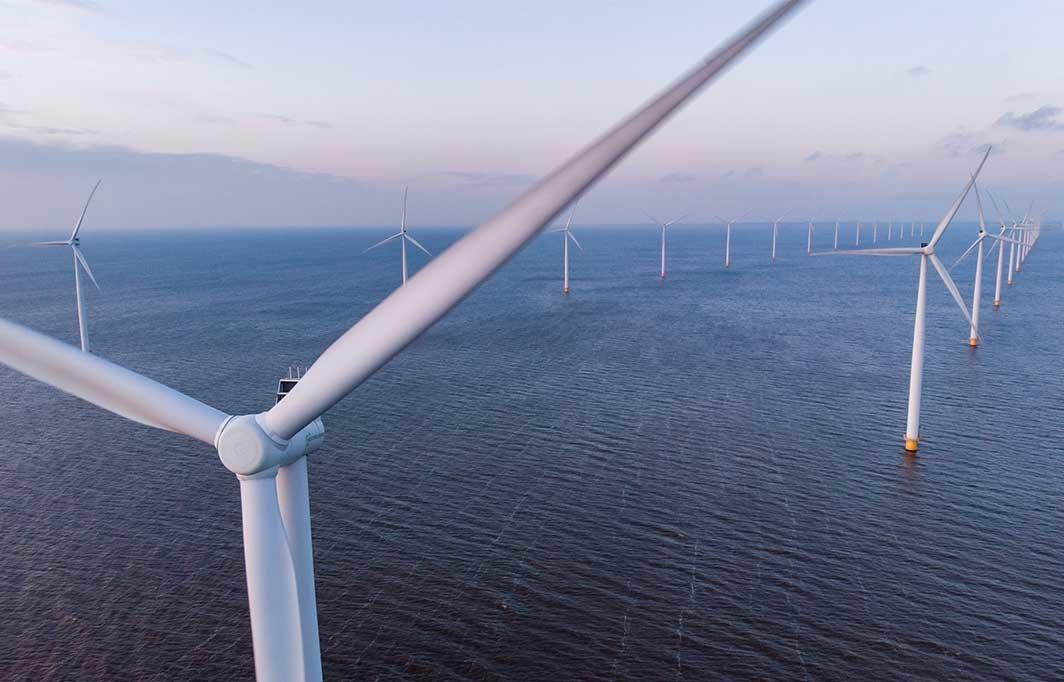Energy: Government White Paper lays out plans for clean energy and transition to net zero
News
17 December 2020

On 14 December the Government published its long-awaited Energy White Paper, setting out how the UK will transition to a greener energy system over the coming decades in order to meet its 2050 net zero carbon emissions target.
The White Paper builds on the Prime Minister’s Ten Point Plan for a Green Industrial Revolution announced last month. This included funding to support the decarbonisation of buildings through improved energy efficiency via existing government schemes, such as the Public Sector Decarbonisation Scheme and the Social Housing Decarbonisation Fund.
In the section of the White Paper dedicated to the built environment - which accounts for 19% of the UK’s carbon emissions, the second largest source after transport - the Government states its aim of ‘largely eliminating emissions from domestic and commercial buildings by 2050’.
Specific commitments to decarbonise and improve the energy performance in buildings include: replacing gas boilers with clean alternatives such as hydrogen and heat pumps by the mid-1930s, retrofitting homes for improved energy efficiency, providing charge points for millions of electric vehicles, harnessing renewable energy supplies, and improving the EPC rating of all rented non-domestic buildings to Band B by 2030.
The scope and implications of this White Paper are wide and far-reaching, particularly for workplace and FM professionals who must consider now how to align building energy use with net zero targets.
At national level the scale of the challenge will require thousands of new jobs, new skills and huge investment, all of which are likely to be impacted by the coronavirus pandemic and the as-yet unresolved Brexit situation. Earlier this month two significant publications looked in detail at the challenge of reaching the net zero target and how it could be best achieved:
- a report by the National Audit Office stated that “achieving net zero will require wide-ranging changes across society and the economy at a pace which leaves little room for delay” and that Government needs to create much greater momentum with the public sector, industry and the general public
- the Committee on Climate Change delivered its Sixth Carbon Budget report presenting a detailed route map for a fully decarbonised UK, with the clear message to Government that the 2020s must be the decisive decade of progress and action: by the early 2030s every new car and van, and every replacement boiler must be zero-carbon; by 2035 polluting emissions must fall by almost 80% compared to 1990 levels.
We will continue to keep members updated on the progress of the Government’s energy and decarbonisation plans and on any future actions which currently include:
- a dedicated Heat and Buildings Strategy to encourage consumers and businesses to make the transition to net zero (early 2021)
- publishing its response to the Future Homes Standard consultation
- a consultation on energy efficiency and low-carbon heating for non-domestic buildings
- consulting on regulations to require electric vehicle charge points in all new homes and in non-residential buildings (early 2021)
- changes to the Energy Performance of Buildings (England and Wales) Regulations 2012 (early 2021)
- a consultation on the Energy Savings Opportunity Scheme to improve the energy audits used for buildings, industrial processes and transport (2021)
- consulting on phasing out fossil fuels in off-grid homes, businesses and public buildings (early 2021)
- establishing a UK Emissions Trading Scheme from (1 January 2021) to promote cost-effective decarbonisation, allowing businesses to cut carbon where it is cheapest to do so.
If you have any comments on this article or views on the transition to net zero, please email: [email protected]
